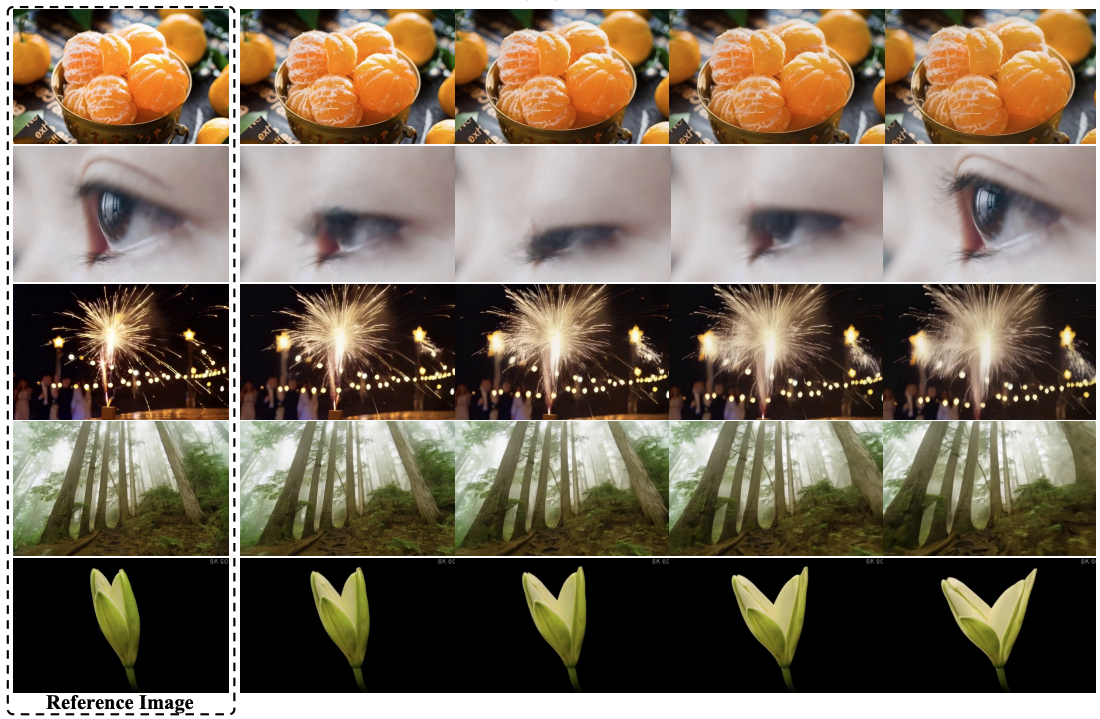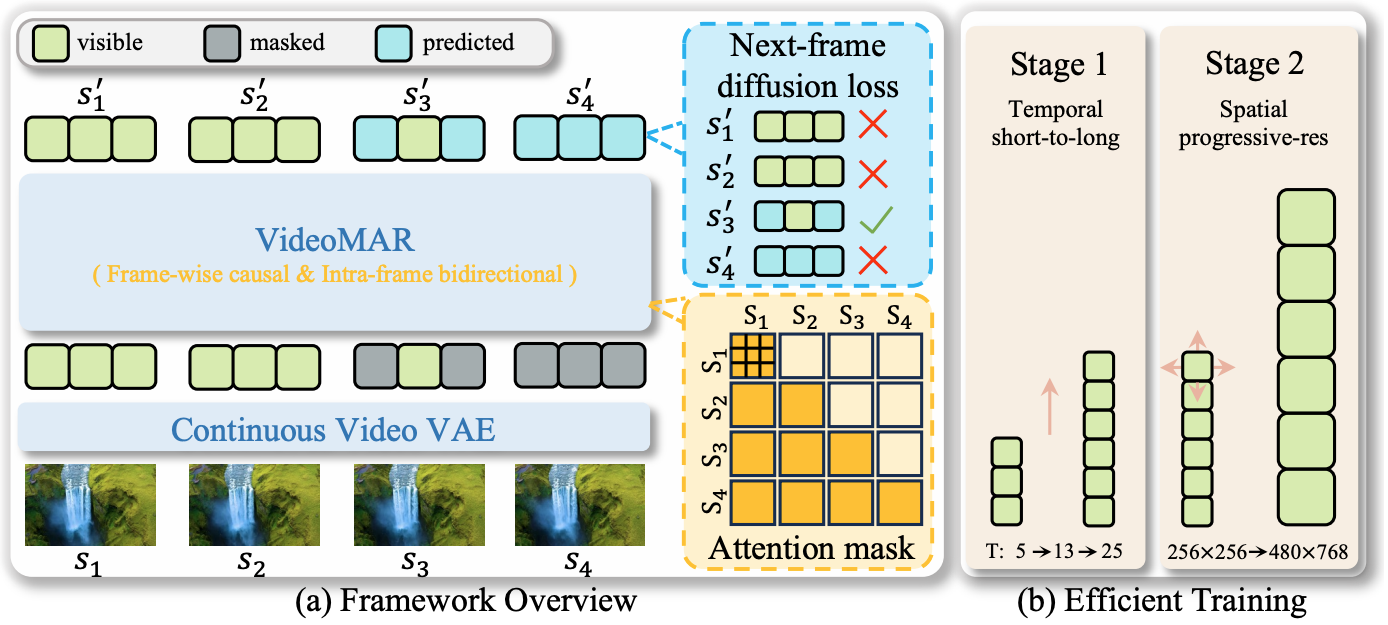
Masked-based autoregressive models have demonstrated promising image generation capability in continuous space. However, their potential for video generation remains under-explored. In this paper, we propose \(\textbf{VideoMAR}\), a concise and efficient decoder-only autoregressive image-to-video model with continuous tokens, composing temporal frame-by-frame and spatial masked generation. We first identify temporal causality and spatial bi-directionality as the first principle of video AR models, and propose the next-frame diffusion loss for the integration of mask and video generation. Besides, the huge cost and difficulty of long sequence autoregressive modeling is a basic but crucial issue. To this end, we propose the temporal short-to-long curriculum learning and spatial progressive resolution training, and employ progressive temperature strategy at inference time to mitigate the accumulation error. Furthermore, VideoMAR replicates several unique capacities of language models to video generation. It inherently bears high efficiency due to simultaneous temporal-wise KV cache and spatial-wise parallel generation, and presents the capacity of spatial and temporal extrapolation via 3D rotary embeddings. On the VBench-I2V benchmark, VideoMAR surpasses the previous state-of-the-art (Cosmos I2V) while requiring significantly fewer parameters (9.3%), training data (0.5%), and GPU resources (0.2%).
